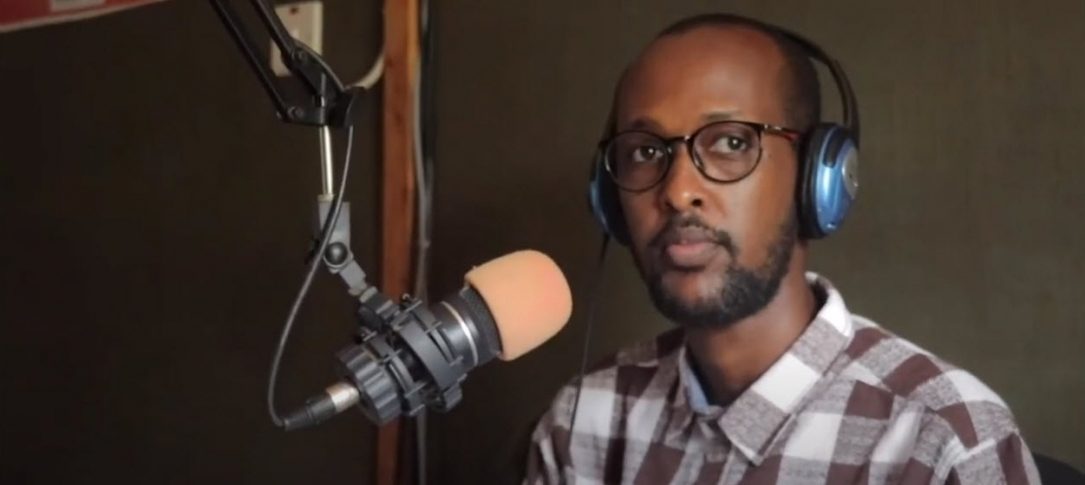
Abdullahi Mire, grantee of Internews’ Information Saves Lives Fund, interrupted his work and studies in Nairobi to return to Dadaab, where high-density living conditions and inadequate health care exacerbate the pandemic
“As soon as the news of the coronavirus reached me in Nairobi, I decided to pack my bags and move back to Dadaab Refugee Camp to help my community. My community educated me, provided me with opportunities and support. I believe it is my obligation to help them in any way I can.”
Abdullahi Mire
Watch a video of Abdullahi at the camp:
Abdullahi Mire is a thirty-three-year-old journalist who was living, working and studying in Nairobi, Kenya when the pandemic hit. He was born in Qoryooley, a town in southern Somalia. When Abdullahi was 3 years old, his father was targeted by rival clans and the family was forced to flee to Kenya where they settled in Dadaab refugee camp.
At the camp, Abdullahi enrolled in a program offered by Kenyatta University and earned a diploma in journalism and public relations. He began working as a fixer and public information officer for media outlets and NGOs. In the past five years, he has been published in the Washington Post, Al Jazeera, The Guardian and other outlets, and until last month, was living in Nairobi pursuing a bachelor’s degree in Mass Communications.
In Dadaab, Abdullahi is hosting a daily radio show on Radio Gargaar, a community-based, commercial radio station in the camp with the ability to reach all 200,000 residents as well as the surrounding host community in Garissa County.
Abdullahi was awarded a grant from Internews’ Information Saves Lives fund, which he plans to use to expand his show from 20 minutes to an hour per day. He also plans to add radio dramas and entertainment for children to help address the fear and isolation that permeates the camp.
“Because of the high rate of underlying health concerns among community members, the high-density living conditions, and the lack of medical facilities to handle a pandemic, I felt my skills as a journalist would be more useful in the camp, helping my community, than in Nairobi as a freelancer,” says Abdullahi. “There are very few people in Dadaab with the skills and journalistic experience that I have been fortunate to acquire. So, I am putting those skills to work.”
He works in collaboration with a network of advisors, informants and community leaders who supply him with public health information, policy updates and reports on the different rumors and misinformation circulating among the population in the camp. This network includes organizations like the Kenya Red Cross, Norwegian Refugee Council and UNHCR.
He provides the community with the latest news from Kenya and Somalia related to the coronavirus and with updates on the latest guidance from government agencies, the WHO, and others. He then opens the show to callers who can ask questions, report on concerns as well as share different rumors they are hearing.
“For example, it was widely believed that Somalis as devout Muslims were not susceptible to COVID-19. I was able to address this misinformation by reporting on the recent death of Axmed Ismaaciil Xuseen, a revered Somali musician,” said Abdullahi. “As a member of the community myself, and because of my deep knowledge of the community and its culture, I am able to address misinformation in a manner that is not possible for the agencies currently sharing guidance on social distancing and other mitigation strategies.”
The pandemic crisis is also an information crisis, and journalists are the first responders. In an emergency, information saves lives.